From Struggle to Scale: How One Woman-Led Company Is Changing the Way Rwanda Cooks
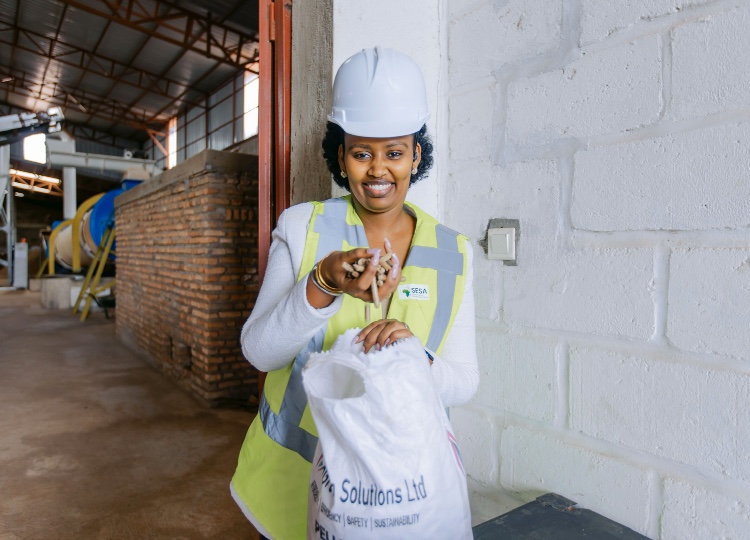
In a quiet corner of Rwanda’s green hills, a woman’s ambition is changing how thousands of families cook their meals. What started as a small operation renting space and equipment is now a full-fledged clean cooking business reaching communities across the country.
Anitha Umutoniwase, founder and CEO of Eco Green Solutions Ltd, is leading the charge. Her company manufactures and distributes high-efficiency cookstoves and fuel pellets that cut smoke, slash fuel consumption, and create jobs—especially for women and young people.
“The journey with the ReCIC project was a dream come true. We were able to produce standardised higher-tier cookstoves, create strong community impact, and take meaningful climate action,”
—Anitha Umutoniwase, Founder & CEO, Eco Green Solutions Ltd
Starting from Scratch
Anitha’s company was officially registered in 2020, but the idea started earlier, in 2018, as a personal drive to solve the everyday struggle many Rwandans face with cooking fuels. At the time, 80% of households still depended on firewood—a practice that causes health problems, eats into family time, and contributes to deforestation.

In the early days, Eco Green Solutions operated under tight constraints. Without its own machines, the company rented factory space and produced Tier 2 stoves with limited capacity. It wasn’t enough.
“We were operating under severe limitations,”
says Umutoniwase.
To grow, she needed more than motivation. She needed tools, staff training, and guidance.
A Turning Point: ReCIC Support
In 2023, Eco Green Solutions was selected for support under the ReCIC project—short for Reducing Climate Impact of Cooking in Rwanda through Improved Cooking Energy Systems Action. Implemented by SNV and GIZ with funding from the European Union and BMZ, the project has supported 12 Rwandan companies (all EPD members) with a mix of grants, training, and business development support.
For Anitha’s team, the timing couldn’t have been better. Through the project’s Cooking Energy Business Grant Fund, they received new production machines and technical training in product design and business planning.
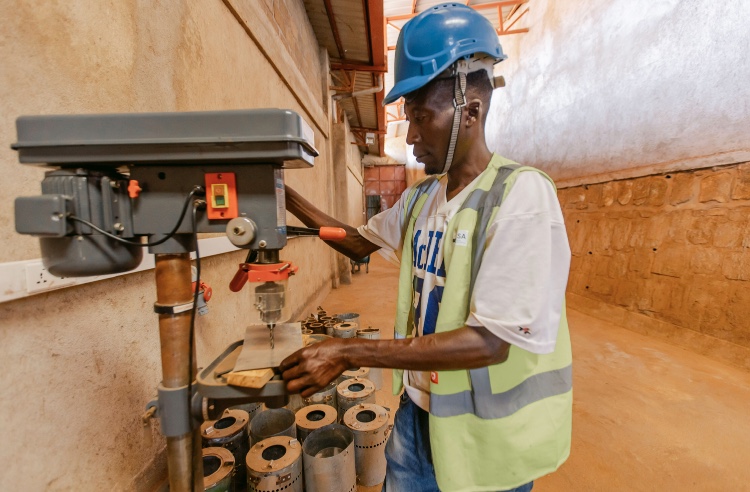
But the support went far beyond equipment. The impact was immediate. With upgraded tools and a more capable team, Eco Green Solutions could shift away from basic Tier 2 stoves and focus on producing more efficient Tier 3 and Tier 4 models. They now manufacture seven types of higher-tier stoves and two types of fuel pellets—becoming a full-service provider in Rwanda’s clean cooking value chain.
By April 2025, they had distributed over 6,200 improved cookstoves, far surpassing their original goal of 5,000 units.
Beyond the Numbers: Jobs, Carbon Savings, and Community Impact
The company’s stoves don’t just burn cleaner—they burn smarter. Each Tier 3 or 4 stove is estimated to cut 3 to 4 metric tons of CO₂ per year, while reducing fuel use by up to 71%. That means lower household costs, better indoor air, and less strain on Rwanda’s forests.
These energy-efficient stoves make a substantial difference in both household economics and environmental sustainability while delivering additional benefits in terms of improved health and gender empowerment.
Employment is part of the story, too. Eco Green’s team is 60% women, with the rest made up of men and youth. For Umutoniwase, hiring inclusively is not just good business—it’s part of the mission.
This approach showcases Eco Green’s role in empowering marginalised groups through job creation in the green energy sector.
The company now plans to open 15 new sales outlets across Rwanda by the end of 2025, building on growing demand and community partnerships.
The Hard Part: Changing Minds
Despite their momentum, the team knows success isn’t just about building better stoves—it’s about convincing people to change how they cook.
“Shifting customer attitudes away from traditional cooking practices toward clean alternatives remains our biggest ongoing challenge,”
says Umutoniwase.
It’s an uphill task, especially when charcoal and firewood are cheap, familiar, and embedded in daily life. But Eco Green is tackling it head-on—investing in customer education and working with local banks to offer payment options that make stoves and pellets more accessible.
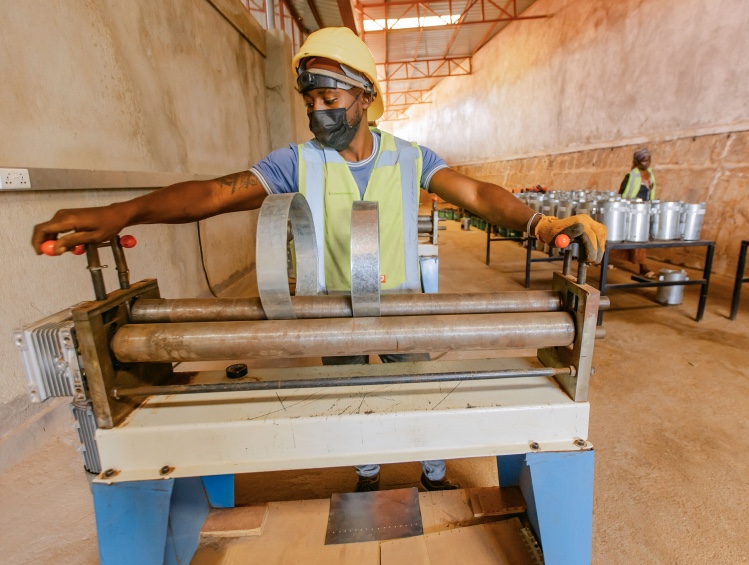
They’ve also learned to manage costs, even as raw material prices continue to rise. With stronger systems and growing credibility, the company has begun securing financing from banks—another sign of its evolution from small startup to serious player.
A Model for What’s Possible
As Rwanda pushes toward its goal of cutting household firewood use to 42%, the government is calling on the private sector to step up.
“Our aim is to decrease fuels that harm the environment and human health. This demands that we work closely with the private sector for us to achieve this goal,”
—Jean Bosco Mugiraneza, Director General for Energy, Ministry of Infrastructure
Eco Green Solutions is answering that call—meeting the need for cleaner stoves, hiring women, saving trees, and building a business that works.
Out of the 2.3 billion people around the world still relying on traditional cooking methods, 449,315 Rwandan households had access to improved cookstoves through ReCIC-supported companies by April 2025.
Eco Green’s story shows what happens when local innovation meets the right kind of support. It’s not just a success story—it’s a signal that bigger change is possible.
With determination, support, and a commitment to solving real problems, small businesses can create big changes in their communities and environment.
Related Articles
Strengthening Rwanda’s SMEs for Circular Food Systems: Embedding Circularity Beyond Project Implementation for Long-Term Transformation
As Rwanda advances its circular economy ambitions, small and medium-sized enterprises (SMEs)...
Powering Food, Restoring Land: How Renewable Energy and Regenerative Agriculture Are Transforming Rwanda’s Farms
Across Rwanda’s rolling hills, a quiet revolution is underway. It begins in...
Late February Weather Alert: Heavy and Above-Average Rainfall Forecast Across Rwanda
The Ministry in charge of Disaster Management (MINEMA) has issued a weather...
GBOX Launches AI Literacy Initiative to Support Rwanda’s Digital and Sustainable Development
A new Artificial Intelligence (AI) literacy program has been introduced last week...





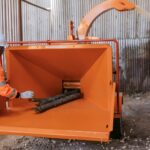


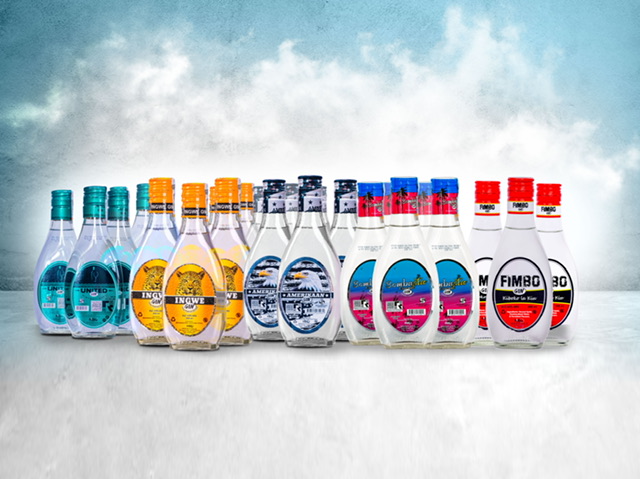
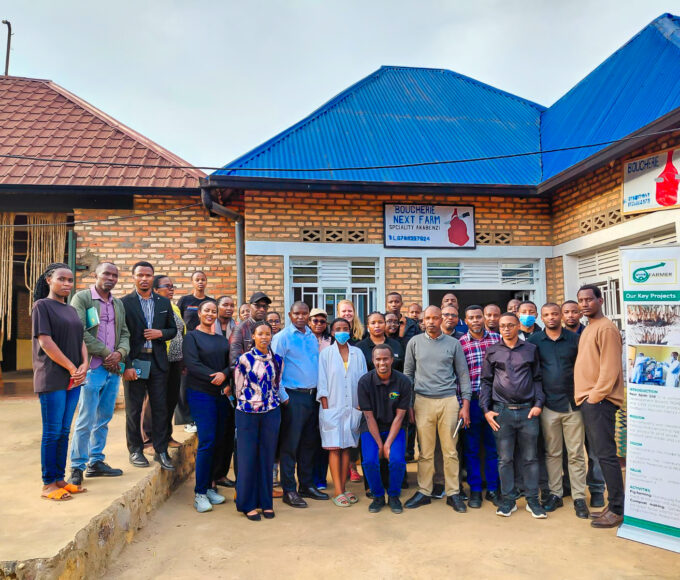


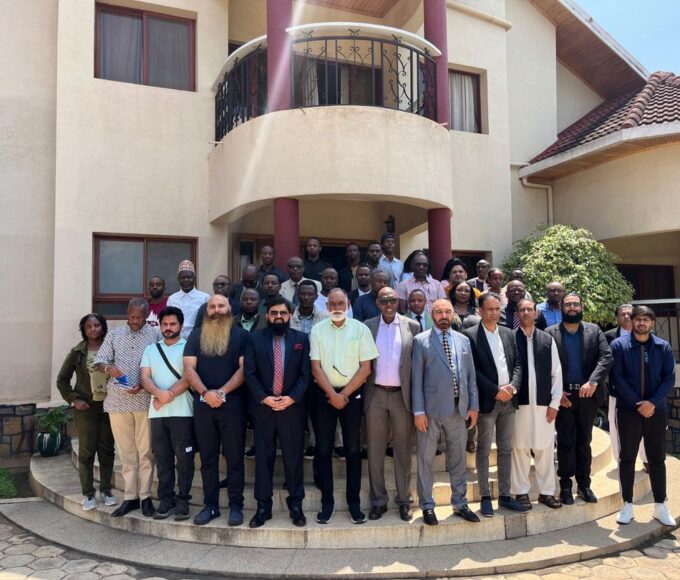
Leave a comment